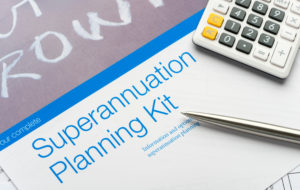
Not so super: How to avoid delays in superannuation claims
Last updated on May 29th, 2025
Superannuation is our retirement safety net, a nest egg no one wants to access too early. But there are many reasons why you might need to do so, not the least of which is financial distress.
The Australian Financial Complaints Authority (AFCA) says the number of complaints involving delays in the handling of superannuation claims has jumped in the past year, from 18 percent of all complaints in 2022 to 24 percent in May 2023.
Glen McCrea, the deputy chief executive of the Association of Superannuation Funds of Australia, says this rise could be partly attributed to the difficult economic climate.
“Given cost of living pressures, the urgency to access payments, including claims for compassionate and hardship payments, increases,” he told the ABC.

Delays in payouts can cause enormous stress for those in vulnerable position. Especially for people who are either struggling financially or are grieving a loved one.
So what can you do to ensure more timely access to superannuation? What are the superannuation trustee’s obligations to you? And what remedies are there if your claim is not being handled properly?
When can you access superannuation outside retirement age?
Superannuation, commonly known as "super," is a long-term investment accessible upon reaching your preservation age and retiring. However, under certain circumstances, it may be possible to access your superannuation early. Here are some of them:
-
- Severe financial hardship - If you have been receiving eligible government support payments continuously for 26 weeks due to severe financial hardship.
- Compassionate grounds - If you need funds for specific costs, such as medical treatment, palliative care or preventing mortgage foreclosure.
- Terminal medical condition - If you're diagnosed with a terminal illness or injury and meet certain conditions. This includes two medical practitioners certifying that your illness or injury will likely result in death within 24 months.
- Incapacity - If you're temporarily or permanently incapacitated due to physical or mental medical conditions that prevent you from working.
- Death of a loved one - Being listed as a beneficiary may entitle you to receive their superannuation benefits, known as a 'death benefit'.
- Departing Australia Superannuation Payment (DASP) - If you're not an Australian or New Zealand citizen or a permanent resident, and are leaving Australia permanently.
- First home super saver scheme - Under this scheme, you can release voluntary concessional (pre-tax) and voluntary non-concessional (post-tax) contributions made to your super fund since 1 July 2017. Eligibility criteria applies.
How do you claim early release of super?
Accessing your superannuation early involves several steps. This may vary based on individual circumstances and specific fund rules. Here's a general outline of the process.
-
- Contact your super fund - Discuss your situation and inquire about necessary forms or documentation. As each fund has distinct processes, you should get this information directly from your fund. Some are straightforward - you log in and submit, while others require you to call them first.
- Compile necessary documents - These vary according to your circumstances. For instance, applying on medical grounds requires medical certificates. Also, for financial hardship, evidence of the respective condition is needed.
- Complete and submit your application - Submit any necessary documentation to your super fund. Ensure you keep copies of everything submitted for your records.
- Application assessed by your fund - Ask for an estimate of the waiting duration, as the process time can vary.
- Release of super - If approved, your super will be released to you, either as a lump sum or regular payments. This will be based on your circumstances and fund rules.
The superannuation trustee’s obligations
A superannuation trustee is an individual or company that is responsible for managing your super fund, and has several obligations. They must act in your best interests, ensure fund compliance with trust deed rules and superannuation laws, oversee the fund's investment strategy, ensure the fund can meet current and future obligations, provide necessary information to you and regulatory bodies, and handle any complaints you may have.

The Superannuation Industry (Supervision) Act 1993 (SIS Act) governs the role of a superannuation trustee, and they have several important obligations.
Firstly, your trustee must always act in the best interests of all fund members. This means they should make decisions that benefit you and other members rather than serving their interests or the employer's.
Secondly, your trustee must ensure the fund complies with the rules set out in the trust deed (the legal document that establishes and governs the fund) and with superannuation laws. This includes the SIS Act, the Corporations Act 2001 and the Australian Securities and Investments Commission (ASIC) Act 2001
The Corporations Act outlines the operational rules for companies, including those running superannuation funds. It also stipulates the duties of directors and officers, which applies to trustees of super funds if they operate as corporate trustees. The ASIC Act establishes ASIC, which enforces these laws, ensuring superannuation funds comply with their obligations and work fairly and transparently.
Thirdly, your trustee is responsible for the fund's investment strategy. They must ensure the system suits your needs and circumstances and regularly review and adjust the process as necessary.
Fourthly, your trustee must ensure the fund has enough money to meet its current and future obligations. This includes ensuring the fund can pay benefits when you retire or leave the fund.
Your trustee must also provide you with certain information, such as annual statements and information about changes to the fund. They must also provide information to the ATO and other regulatory bodies.
Finally, if you have complaints, your trustee must have procedures for dealing with them. They must also be members of the AFCA, which can resolve disputes between trustees and members.
How long does it take to access super?
Typically, you should receive your funds within five business days after your claim is approved. However, several factors might extend this process:
-
- Incomplete or incorrect information - If your application details are incomplete or incorrect, the fund might need to clarify or request additional information from you.
- High volume of applications - During periods of high demand, such as during a financial crisis or a significant change in government policy, the volume of applications can increase dramatically. This can put a strain on the fund’s resources.
- Suspected fraud - If there are indications or suspicions of fraudulent activity related to a claim, the fund must thoroughly investigate this before releasing any funds. Such scenarios might involve suspected identity theft or unusual activity patterns on your account.
- Complex cases - Certain cases might necessitate extra checks or documentation. For instance, if you're applying for an early release based on compassionate grounds, the fund might need to verify your medical condition or financial hardship.
- Transfers between funds - If you're consolidating your super or changing funds, the process could take longer due to the transfer of money between various organisations, each having its own processes and timelines.
- International factors - For overseas citizens claiming a Departing Australia Superannuation Payment (DASP), international factors such as time differences, international bank transfer times, and foreign public holidays can lead to delays.
How can you identify unnecessary super payout delays?
Although payout delays can occur, they should not be excessive or without valid reasons. For example, Carolyn Hocking, experienced an extreme case, waiting 15 months to access her late husband's Cbus Super.
Several indicators suggest you might be experiencing unnecessary delays with your super payout:
-
- Frequent alteration of criteria - Your super fund regularly changes its criteria, making it more difficult to claim insurance benefits.
- Repeated information requests - While some requests for information are valid, frequent requests can serve to slow the process.
- Lost documents - Your fund claims not to have received the documents you sent.
- Frequent staff changes - Your case is consistently handed over to new staff members, leading to investigation restarts.
- Multiple medical examinations - If you are being referred to several medical practitioners, a practice known as 'doctor shopping', it might be a tactic to gather evidence to decline a claim.
- Unresponsiveness - Your fund isn't answering calls or emails, or keeps you on hold for extended periods.
What steps has the government taken regarding superannuation complaints?
ASIC has established a new Internal Dispute Resolution (IDR) data reporting framework. This framework aims to improve transparency and accountability within financial firms, including those managing superannuation funds.
Firms are now required to report on their IDR activities, which aims to show how they handle complaints, including those related to your superannuation. This data will offer valuable insights into the number of complaints received, their nature, and how they are resolved.
This increased transparency can help identify systemic issues within superannuation funds and encourage better complaint handling. This data can also offer valuable information for you when choosing a super fund.
Public reporting of this data can motivate superannuation funds to resolve disputes more efficiently to maintain their reputation. In the long run, this could lead to better outcomes for you, especially if you're making superannuation complaints.
Lastly, the collected data will support ASIC in its regulatory role, helping it to identify and address potential issues within the superannuation industry more effectively, ultimately protecting your interests.
Tips to minimise delays in superannuation claim payouts
You can't fully control the processing time of your superannuation claim. But the good news is that you can take certain steps to make the process smoother:

-
- Organise your paperwork - If you're lodging a claim due to financial hardship, terminal illness, or incapacity, prepare all necessary paperwork in advance. This could include financial evidence like bank statements, bills, or a letter from a welfare agency (ask your financial counsellor about this), and relevant medical certifications.
- Confirm timelines - During every interaction with your super provider, ask about the expected processing time for your claim and when you can expect the next update. This information will help you follow up effectively if there are unexpected delays.
- Keep records - Keep a detailed record of all interactions with your super fund. Take note of dates, times, who you spoke to, and what was discussed. This documentation can prove useful in case of future disputes or misunderstandings.
- Nominate a beneficiary - Ensure you nominate a beneficiary for your superannuation in a Binding Death Nomination. This legal document specifies who will receive your superannuation benefits in the event of your death. To avoid potential confusion or disputes, it's a good idea to nominate the same person as the beneficiary in your will.
Where do I complain about superannuation claim delays?
If you're experiencing delays with your super claim, your fund’s IDR team should be your first point of contact. With the implementation of the new IDR data reporting framework, your fund should be more responsive to your concerns.
Additionally, you have the option to lodge a complaint directly with the AFCA, by emailing, calling, sending a letter or via their website.
It's important to remember, that you are entitled to your superannuation, or your partner's if you've been named a beneficiary. If you meet the criteria for early access, the claim process should not be excessively difficult or add significant stress to an already challenging situation. If you aren’t receiving the support you need, lodge a complaint with us, and we’ll help you handle it.






